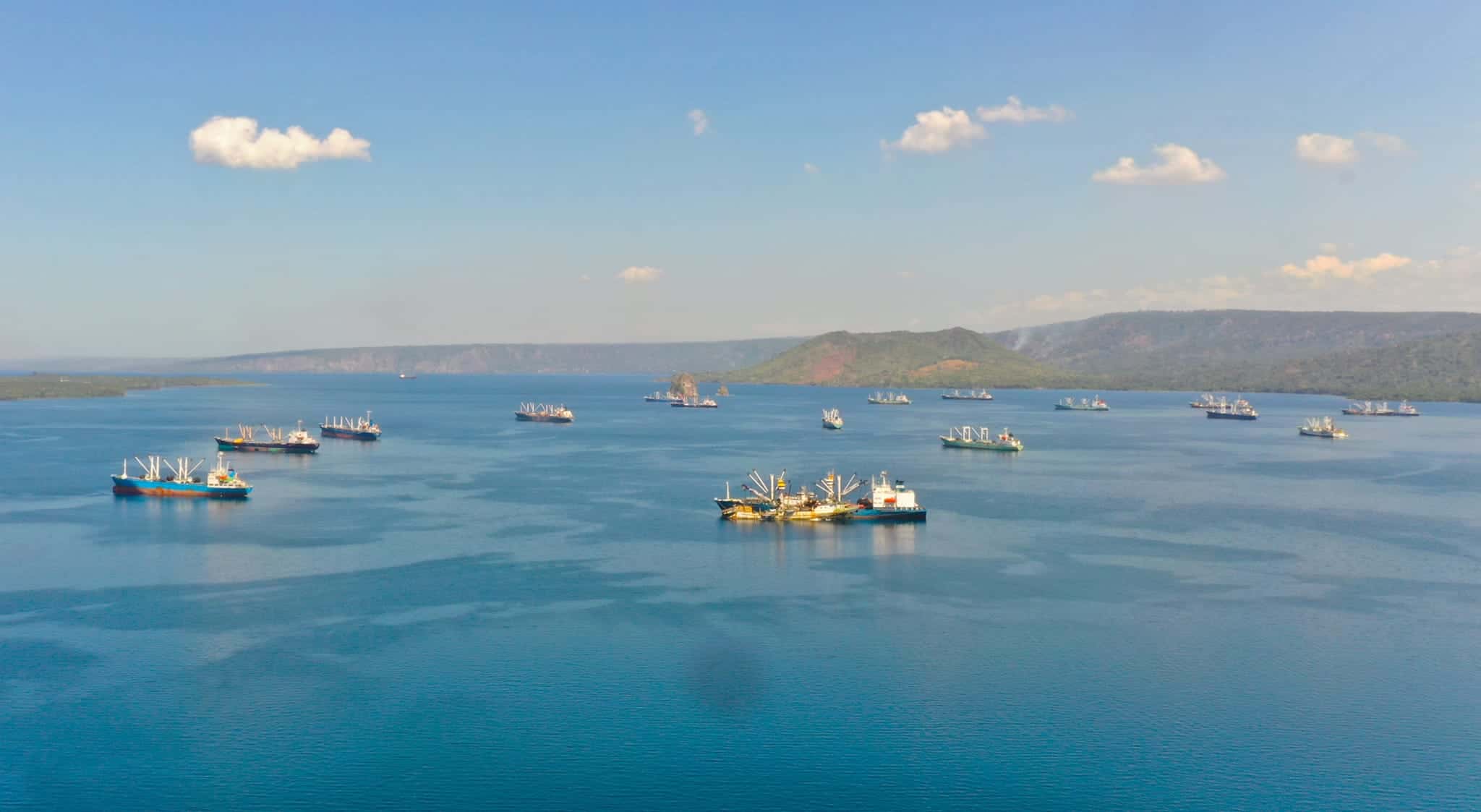In a new partnership with Global Fishing Watch, Papua New Guinea has committed to sharing vessel tracking data from its Fishing Industry Association on the organisation’s public map. Through this agreement, PNG is taking action to enhance the monitoring of fishing vessels operating in their waters and increase the transparency of its seafood supply chain.
A memorandum of understanding outlining the partnership was signed between Global Fishing Watch and the PNG Fisheries Authority on October 11 at the 17th Infofish World Tuna Trade Conference and Exhibition in Bangkok.
The agreement was reviewed and endorsed by all members of PNG’s Fishing Industry Association and is a testament to PNG’s commitment to increasing accountability across the fishing sector and their desire to effectively manage fisheries and marine resources for sustainable and equitable benefits.
The newly available vessel monitoring system data will complement the already-existing automatic identification system, or AIS, data that appears on Global Fishing Watch’s map. This additional layer of information will help strengthen vessel compliance and aid in the sustainable use of marine resources, and highlights industry’s appreciation for the role transparency plays in building trust with their customers.
“We welcome this new partnership with Papua New Guinea and commend their leadership in fisheries transparency,” said Tony Long, chief executive officer of Global Fishing Watch. “We see incredible value in the relationship that the National Fisheries Authority has with the Fishing Industry Association, demonstrating the importance of effective government and industry partnerships in advancing good governance and promoting a positive compliance environment.”
“Our tuna fishery is one of the largest in the western and central Pacific Ocean and represents a key source of protein for more than 9 million people in Papua New Guinea,” said Justin Ilakini of PNG’s Fisheries Authority. “Taking care of our tuna stocks is a priority, and with support from Global Fishing Watch’s monitoring technology, we can strengthen enforcement, contribute to regional collaboration to eliminate illegal fishing and also demonstrate our commitment to promoting food security and the blue economy.”
All of the association’s 50 vessels that are currently authorised to operate within PNG’s exclusive economic zone—an area that covers an estimated 2.4 million sq. kilometers and home to some of the most productive tuna fisheries in the world—will soon be visible on Global Fishing Watch’s map.
“Transparency across all aspects of the tuna fisheries is crucial to ensuring that the fish we eat is caught legally, ethically and sustainably,” said Sylvester Barth Pokajam, chairman of PNG’s Fishing Industry Association. “Our members want to know they are doing the right thing when it comes to responsible tuna sourcing, and by making fishing activities visible on the Global Fishing Watch map, they can help demonstrate compliance and add real value to their fishing operations.”
“We are engaging with key stakeholders that can strengthen our Responsible Sourcing Policy initiative,” said Marcelo Hidalgo, sustainability and corporate social responsibility director of PNG’s Fishing Industry Association. “We believe this new partnership with Global Fishing Watch to share our vessel tracking data is integral in building trust with commercial partners and nongovernmental organisations, representing another milestone in our transparency policy to support members and demonstrate responsible sourcing in Papua New Guinea.”
PNG joins the Marshall Islands as the second nation in the Pacific to commit to making their vessel tracking data publicly available via Global Fishing Watch’s map. This promotes and builds on regional efforts to make fisheries data more transparent and accessible, helping inform decision makers and enhance vessel monitoring efforts across the region. As a member of the Pacific Islands Forum Fisheries Agency and one of eight Parties to the Nauru Agreement, PNG recognises the importance of collaboration and regional solidarity to secure sustainable fisheries and tackle illegal fishing.
In addition to sharing their vessel monitoring data, PNG’s Fishing Industry Association has also agreed to support the work that Global Fishing Watch is undertaking more widely in the region to explore how vessel information can be used to develop risk models that aim to address forced labor across the fishing industry.
This important decision supports the global momentum in efforts to make fisheries data more accessible as PNG joins a growing number of countries dedicated to transparency across fisheries, including: Norway, Benin, Marshall Islands, Belize, Costa Rica, Brazil, Ecuador, Chile, Panama and Peru.
